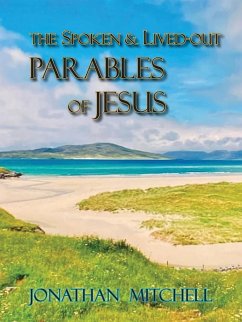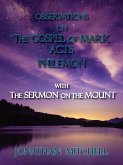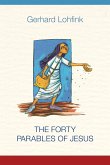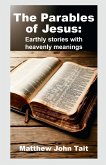Our English word "parable" is a transliteration of the Greek, parabol¿, and is a loan word from Greek that now has a long history in the English language. It has often been thought of as being a story that makes some point. Many of Jesus' parables were stories, but the Greek term has a wider usage. The literal meaning of the Greek word meant "something cast down at the side for comparison or illustration." When Alexandrian Jews translated their Hebrew Scriptures into Greek (for what became known as the Septuagint, or, the LXX, in the 3rd century BC), parabol¿ was used for the Hebrew masal, which referred to a variety of figures of speech: riddle; proverb; ethical maxim; by-word; allegory; fable; enigmatic saying that is meant to stimulate intense thinking. In Mat. 13:34, we read: "Jesus spoke all these things in parables to the crowds, and apart from parables He was, and continued, speaking nothing to them." A parallel saying is found in Mk. 4:33. So by means of many parables (illustrative comparisons) of this kind He continued speaking the message (Word; Logos) to them (or: kept on conveying a flow of the information for them and progressively declared the Blueprint and Idea among them) - according as they continued able to continue hearing (or: continued having power to be repeatedly listening).34. Now apart from a parable (illustrative comparison) He was not normally (in the habit of) speaking to, or among, them. Yet privately and in accord to a person's own [ability] He was routinely loosening all things upon (or: habitually releasing all for; so: explaining and interpreting everything to) His own disciples (students; learners; apprentices). I owe the concept of "lived-out" parables to Robert Farrar Capon, Kingdom, Grace, Judgment; Paradox, Outrage and Vindication in the Parables of Jesus, Wm. B. Eerdmans Pub., 2002, where he referred to Jesus as having acted out parables (e.g., p 9). All of Scripture: its histories, its poems, its prophesies, its Gospels, and even the situations addressed, or the admonitions, in the NT letters, are passages that can be laid beside our own lives to give instruction, be catalysts for contemplation, and shed Light for comparison with our own behavior. Taking into consideration the broad range of use for this term, "parable," together with what the Gospel writers have said about how Jesus communicated His teachings to the crowds, our investigation will look for "parables" in other literary devices that Jesus used, as well as for how the Gospel writers used Jesus' actions to create lived-out parables which they included in their texts. This work will follow the sequence of the Gospel of Matthew, but will insert various parables, from the other Gospels, which Matthew does not include. It is our view that Jesus Himself is the central parable that flows throughout the Gospels. The Gospels, as a genre of literature, can also be discerned as versions of The Story, cast alongside the history of humanity, presenting us with a picture of, and the spirit of, God's Love, while revealing to us a True image of God, and the Heart of our Father. Each Gospel is a parable of the Good News. This work is based upon the author's translation of the Greek New Testament.
Hinweis: Dieser Artikel kann nur an eine deutsche Lieferadresse ausgeliefert werden.
Hinweis: Dieser Artikel kann nur an eine deutsche Lieferadresse ausgeliefert werden.








